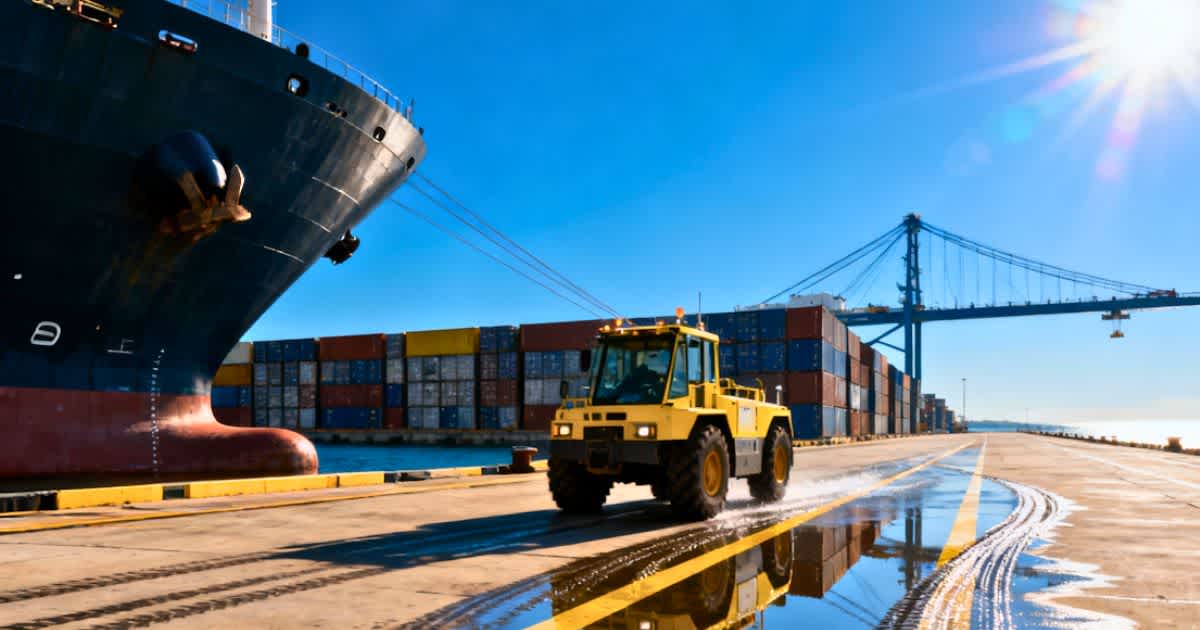Table of Contents
- 1. Data-driven decision-making: from intuition to precision
- 2. Globalisation versus localisation: finding the right balance
- 3. Resilience and antifragility: crisis-proof and strengthened by challenges
- 4. Digitalisation and automation: efficiency redefined
- 5. Sustainability and ESG integration: responsibility is rewarded
- 6. The rise of private label products: a booming market
- 7. Strategic partnerships and collaboration: working together for success
Sourcing trends 2025: What the future holds
Reading Time: 5 min.

The procurement industry is evolving rapidly and 2025 promises to be a year full of new challenges and opportunities. To ensure that you and your company are well prepared, we have analysed the most important trends for the coming year. From innovative technologies to geopolitical strategies, these trends will shape your procurement strategy.
1. Data-driven decision-making: from intuition to precision
In a world that is becoming increasingly complex, instinct and experience alone are no longer enough. In 2025, data-driven decision-making will play a key role, because those who work in a data-driven way will be able to react more quickly and flexibly to changes in the market.
Big data enables companies to analyse large volumes of data and gain valuable insights in order to make well-founded decisions. In practice, demand forecasts can be made more precise and stock levels optimised.
Predictive analytics enables trends, challenges and risks to be predicted before they materialise. For example, supply bottlenecks can be predicted and alternative suppliers can be activated in good time.
Real-time data makes it possible to react immediately to changes. Whether price changes, new regulations or external disruptions - companies that have access to up-to-date information at all times can act faster and more efficiently. With tools such as our Line Up Supply Chain Dashboard, you can keep an eye on your entire supply chain.
2. Globalisation versus localisation: finding the right balance
The debate about globalisation and localisation will continue in 2025 - but the solution lies in the balance.
Global sourcing will remain essential to ensure competitive prices and a broad selection of suppliers.
At the same time, local sourcing strategies are gaining in importance as they promote flexibility and resilience. Local partners can deliver faster and are less susceptible to international disruptions such as tariffs or political conflicts. Companies must remain flexible and adapt their procurement strategies to the respective market and industry.
3. Resilience and antifragility: crisis-proof and strengthened by challenges
The disruptions of recent years - from supply chain problems to geopolitical tensions - have shown how important resilience is. But 2025 is about more than just stability: anti-fragility is becoming the goal.
Resilience means that companies are resistant enough to withstand disruptions such as cyber attacks, natural disasters or geopolitical tensions. Measures such as friend shoring - the relocation of supply chains to stable countries - are essential here.
Antifragility goes one step further: it is about learning from disruptions and emerging stronger from them. Companies that rely on proactive planning and flexible structures continue to develop in uncertain times and thus gain strength in the long term.
Cybersecurity is becoming an indispensable element of risk management. With the digitalisation of supply chains, the threat of cyber attacks is also increasing. Companies that do not take preventative action here are putting their entire supply chain at risk.
4. Digitalisation and automation: efficiency redefined
The world of procurement has been fundamentally changed by the digital transformation - and it continues to evolve. By 2025, automation and AI will be even more integrated into procurement processes.
E-procurement systems or e-sourcing systems will enable the seamless digitalisation of the purchasing process, from the notification of requirements to invoice processing. Routine tasks such as requesting quotations, approvals and orders are directly automated.
AI-supported automation at a new level: algorithms analyse historical data, identify potential savings and make well-founded procurement decisions in real time.
5. Sustainability and ESG integration: responsibility is rewarded
Sustainability is no longer an optional extra, but a duty. With the increasing importance of ESG criteria (Environmental, Social, Governance), companies are not only focussing on green supply chains, but also on responsibility in social and ethical areas.
Sustainable procurement strategies are not only economically attractive. Companies that assume environmental and social responsibility gain the trust of customers and create long-term partnerships with like-minded suppliers.
ESG criteria (Environmental, Social, Governance) are becoming an integral part of procurement decisions. The EU is focussing more strongly on the topic of ESG. New guidelines in 2025 are intended to encourage companies to act more sustainably and with greater transparency. Companies and suppliers will no longer be assessed solely on the basis of cost and quality, but also on the basis of their environmental performance and social responsibility.
6. The rise of private label products: a booming market
The market for private label products is booming - and not just since yesterday. According to a recent study by NielsenIQ, the market share of private labels worldwide increased by an average of 4% per year between 2020 and 2023 (Source: NielsenIQ, 2024). This trend is set to continue in 2025.
The rise of private labels gives companies more control over the quality, cost and availability of their products. However, private label production requires precise planning and a high degree of transparency in the supply chain. Companies that successfully implement this strengthen their brand and set themselves apart from the competition.
7. Strategic partnerships and collaboration: working together for success
In 2025, procurement will increasingly be perceived as a strategic business function that contributes significantly to value creation.
Strategic partnerships between companies and suppliers create win-win situations. Together they develop innovations, improve products or open up new markets. Close co-operation with partners is becoming the basis for innovation, flexibility and sustainable success. Collaboration is also becoming more important at company level. The integration of supply chains into overarching business strategies ensures efficiency and flexibility.
Act now and transform your procurement
The future of procurement is challenging, but full of opportunities. Whether digitalisation, sustainability or antifragility - with the right measures and partners, you can take advantage of these trends.
Line Up is your partner for future-proof procurement solutions. Whether through digital tools such as our Supply Chain Dashboard, strategic consulting or the optimisation of your processes - we will accompany you on your journey into the future.
👉 Arrange a non-binding appointment now and find out how we can make your procurement strategy fit for 2025.
Newsletter Registration
Sign up now for our free Line Up newsletter and stay up to date.





